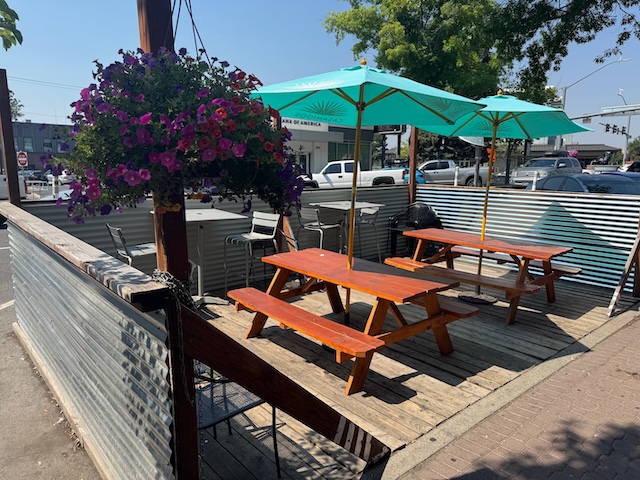In wake of Salem stabbing, Bend providers confident in shelter safety
Published 6:36 am Saturday, June 7, 2025



After a stabbing attack at a homeless shelter in Salem on Sunday left 12 people injured, Bend homeless shelter providers said they are confident in the safety protocols at their own facilities.
The stabbing, which made national headlines, had a connection to Bend. Police arrested Tony Williams, a 42-year-old man who had cycled through psychiatric treatments in Deschutes County. He also had a history of threatening people with knives.
Williams was reportedly traveling by bus from Portland to Bend when he stopped in Salem, police said.
Trending
Local shelter providers can feel the ripple effects in more ways than one: perpetuating the myth that homeless people are more likely to commit violence when in fact they are more likely to be the victims of it, and acting as a deterrent for unsheltered people who could choose not to seek refuge because of threats to their safety.
Ultimately, that would mean more people on the streets and in encampments.
“We understand that violence, its impacts are certainly deeply traumatic for guests, for staff and community members, because shelters are meant to be safe,” said Autumn Rackley, housing director with NeighborImpact, a basic needs nonprofit that runs Stepping Stone, a 56-bed homeless shelter in Bend. Rackley said that reading about the Salem stabbing “can really disrupt that sense of safety for folks, and make folks less trusting and less likely to seek out that help when they need it.”
‘Hard to prevent violence all the time’
According to court documents, Williams, the alleged stabbing perpetrator, had stayed previously at the Bethlehem Inn, a provider that runs shelters in Bend and Redmond, while he received mental health treatment. Court records listed the Lighthouse Navigation Center, a 100-bed shelter in Bend, as Williams’ most recent address.
Due to confidentiality policies, neither shelter provider could confirm if Williams had stayed there.
Trending
Bend has 524 shelter beds among 13 shelter sites, according to the city’s website. More than 200 beds are low-barrier, meaning they do not require sobriety or background checks to enter.
People who use shelters are often coming seeking refuge from the streets or other encampments and are often in survival mode, said Nick Kerman, a psychologist and researcher in Toronto, Canada, who has authored studies on impacts of what is called “shelter-based” violence.
Not only might shelter guests be on guard, but they often come from different backgrounds and walks of life, Kerman said. On top of that, some have unmet mental health needs.
“You’ve just got all of these factors that are happening inside people coming into a space where there’s 20 people, there’s 50 people, there’s 100 people, many of whom don’t feel safe,” Kerman said. “That’s going to be hard to prevent violence all the time.”
A track record
Local shelters said safety practices have been successful at preventing violence. They rely on training staff on how to handle people in crisis, while also relying on help from police when necessary.
Jerry Kaping, development director with Shepherd’s House, the largest shelter provider in the region, said there has been no violent crimes inside of the nonprofit’s facilities.
“Our track record is really, really good,” Kaping said.
Shepherd’s House operates two shelters in the Bend Central District: the Lighthouse, a shelter and service center, and the 60-bed shelter on Franklin Avenue where guests stay in the rooms of the converted Rainbow Motel. Both are funded by the city of Bend. It also runs a smaller men’s shelter in Bend and a shelter in Redmond.
Along with the deescalation training, Kaping said Shepherd’s House has a no weapons policy. If a situation becomes more than staff can handle, the shelter calls the Bend Police Department, Kaping said.
Most of the emergency calls to shelters are related to medical emergencies, according to 911 call logs. In the last two months, calls to the address associated with the Lighthouse Navigation Center have also included “armed subject,” “trespassing” and “criminal mischief.”
Kaping said shelters sometimes get associated with incidents that occur outside their doors, such as when shots were fired last summer on the same block as the Lighthouse’s temporary location on Franklin Avenue.
Policies on violence
Shepherd’s House declined to comment on its policy on violence or whether people who act violently in shelters are removed.
NeighborImpact’s Stepping Stone shelter, which is also low-barrier, has “strict rules against violence, threats of violence, weapons and any illegal activity,” said Rackely, who oversees the shelter.
“Whether it’s on shelter property or in the surrounding neighborhood, if folks violate those rules then they’re immediately exited from the program,” Rackley said.
Rackley said that while it’s low barrier, Stepping Stone — another converted motel — has the safety advantage because each guest or family has their own room with a door they can lock. Staff are trained with deescalation tactics, and when staff are not around, the shelter has contracted security guards, Rackley said.
In general, larger shelters have higher rates of violence, Kerman said.
Policies kicking out violent or potentially violent people from shelters work well at preventing immediate harm, but don’t address — and potentially exacerbate — the harm that person could do elsewhere, Kerman said.
Shelter integration with mental health supports is likely the biggest missing piece when it comes to preventing violence, Kerman said.
A team of homeless outreach service providers employed by the Deschutes County Behavioral Health department drops in once per week at local shelters to conduct mental health screenings, as they work to connect people with a range of resources to help them move forward. That helps identify people who could be referred to the county’s stabilization center, which treats mental health crises, said Colleen Thomas, who supervises the county’s homeless outreach team.
The team also helps train shelter staff with how to manage a crisis, Thomas said.
“This allows shelter programs to feel confident in working with complex populations,” Thomas said in an email.
A bill to increase security
Other shelters, like the Bethlehem Inn, have greater restrictions on who is allowed to stay, which they say reduces the likelihood of violence. Bethlehem Inn screens guests for sex crimes. Guests must not be using drugs or alcohol while in the shelter program. The same rule applies at the Central Oregon Villages, a cluster of tiny shelter units, which also screens for past violent crimes.
Bethlehem Inn has built fencing to control access.
“We have our eyes and pulse on those that are coming to the shelter,” Wysling said.
Wysling is also watching the Oregon legislature closely as it considers a bill that could help increase safety at homeless shelters, she said. The bill SB 939, would provide grants for security for nonprofits. It was introduced on behalf of the Oregon Coalition for Nonprofit Safety in order to protect organizations against what the coalition says are increasing threats of targeted bias crimes.
Police said the stabbing attack was not targeted. But the bill would still be useful in preventing similar attacks at homeless shelters, said Max Williams, a leader at the Oregon Community Foundation and former head of the Oregon Department of Corrections who helped spearhead the bill.
He said grants could pay for doors, barriers, cameras, lights and locking systems — as well as staff training in crisis response.
“Preparing, planning, training all helps protect people and saves lives,” he said.
Reporter: cfranke@bendbulletin.com, 541-617-7854












